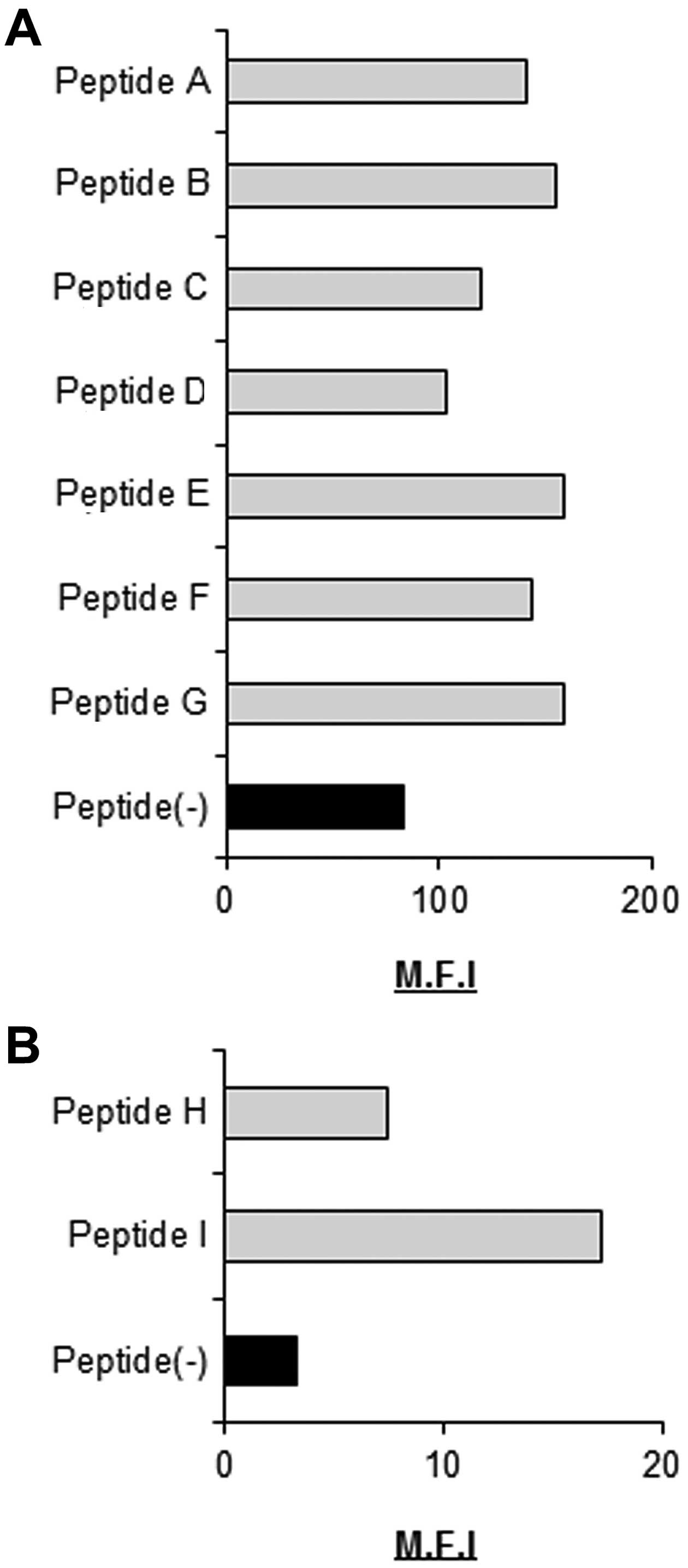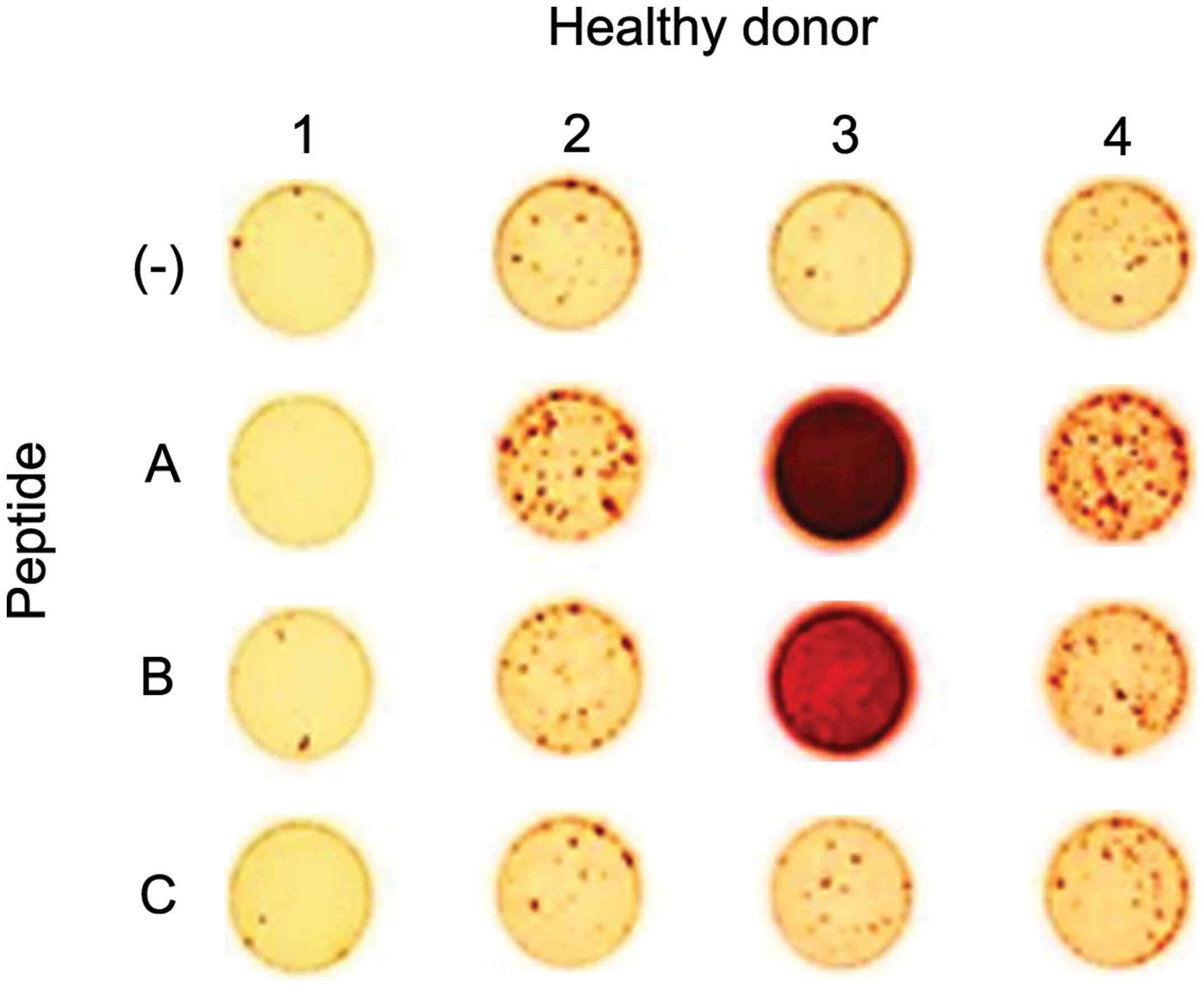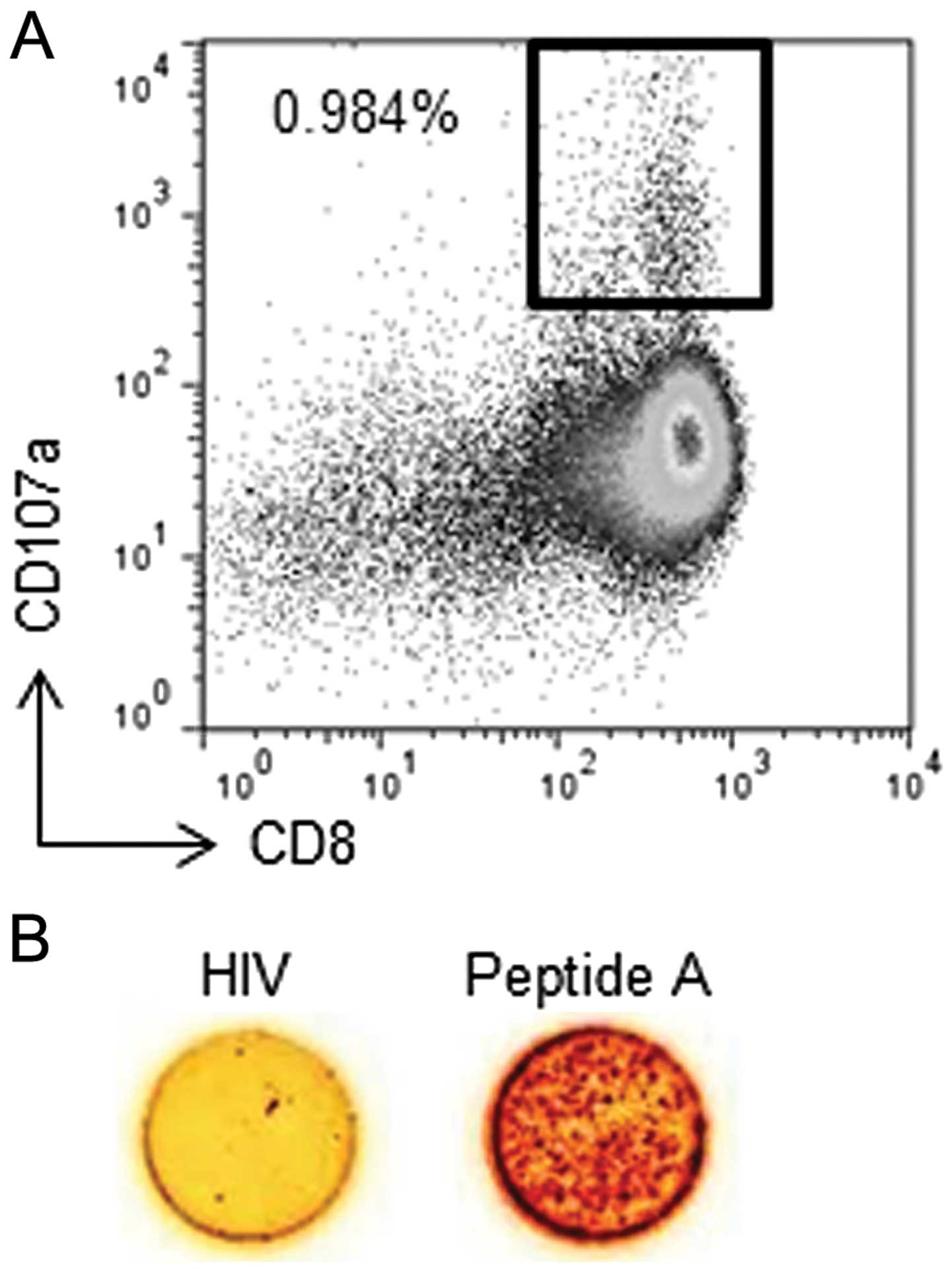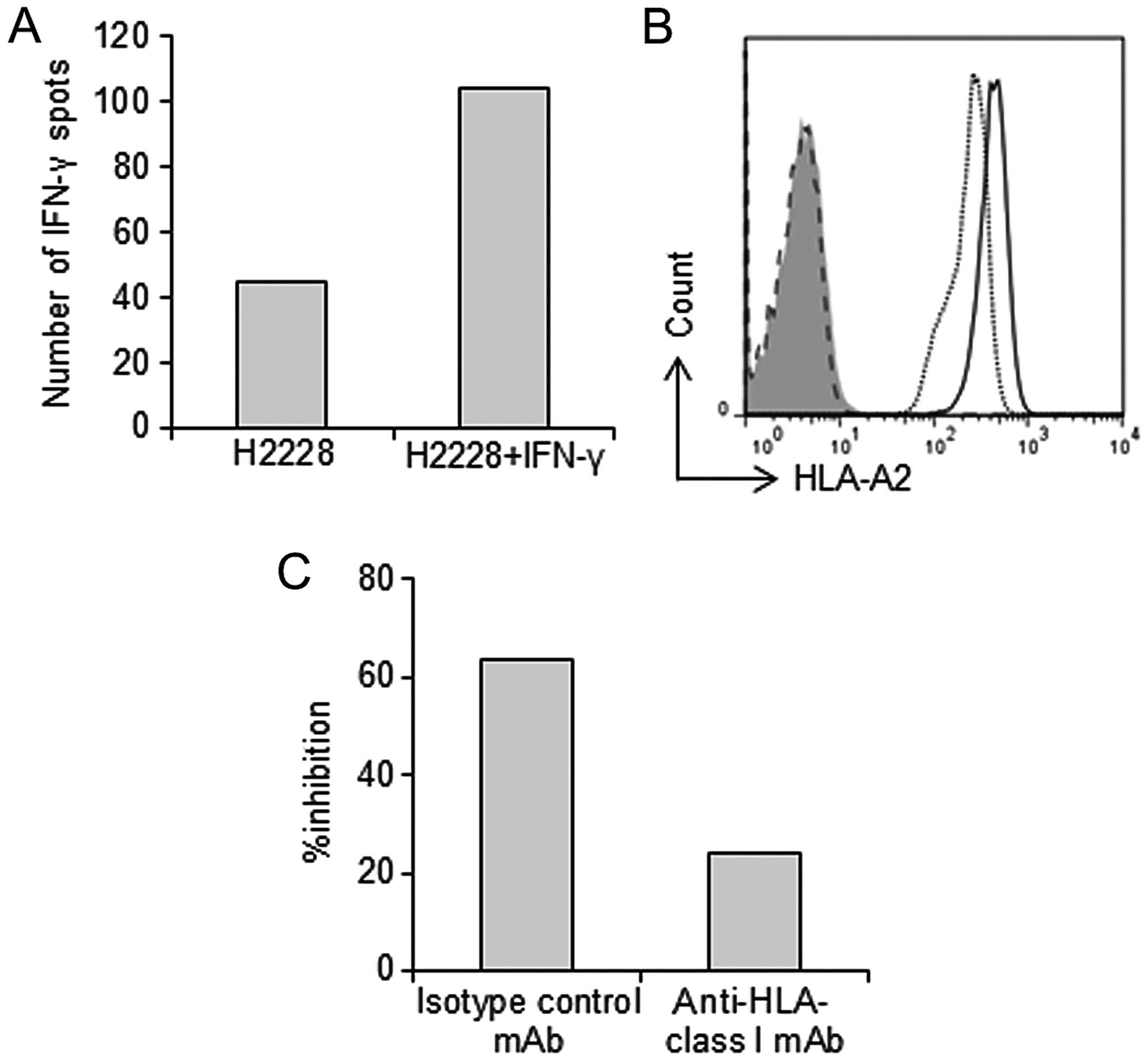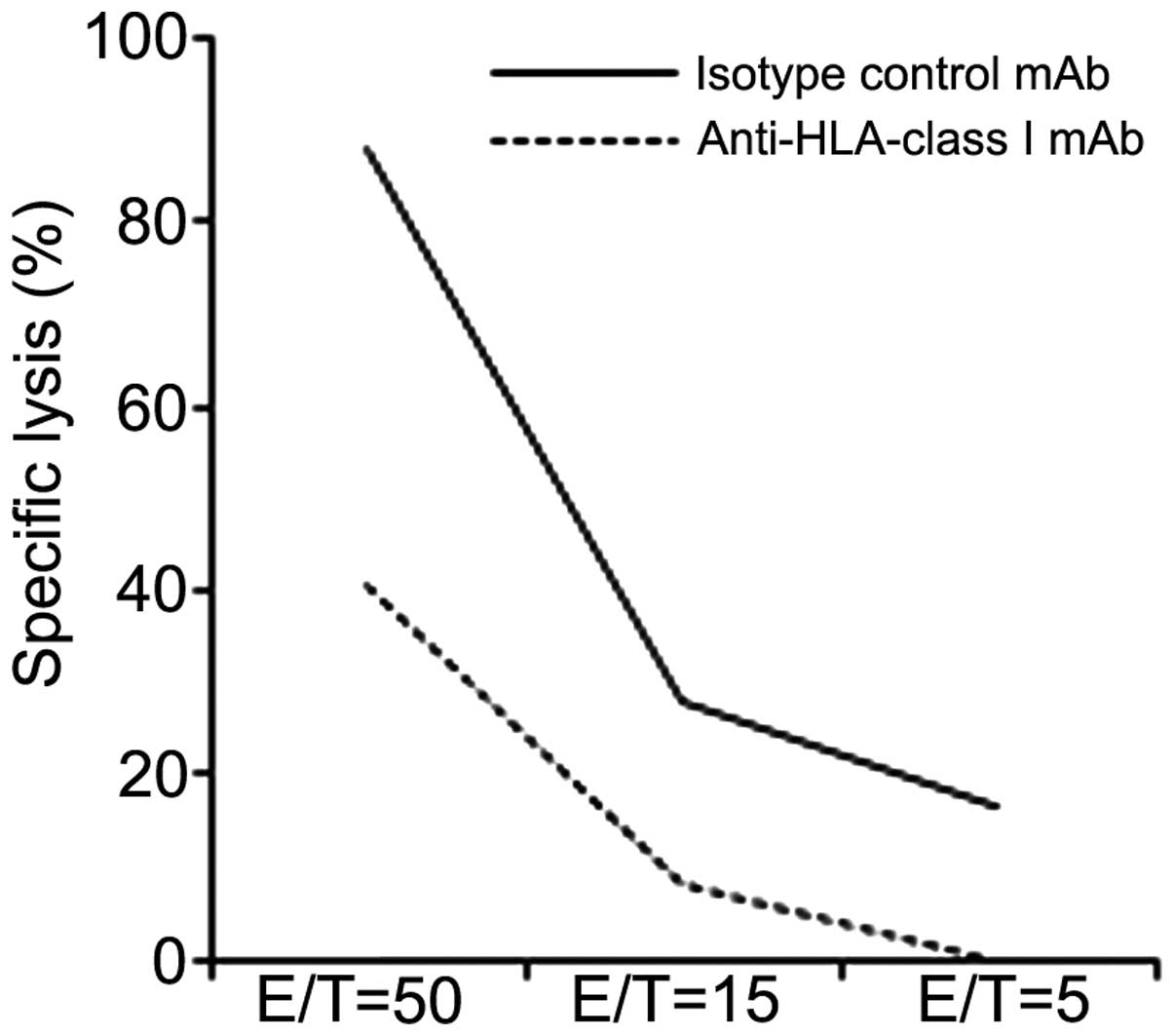|
1
|
Silvestri GA, Tanoue LT, Margolis ML, et
al: The noninvasive staging of non-small cell lung cancer: the
guidelines. Chest. 123:147S–156S. 2003. View Article : Google Scholar : PubMed/NCBI
|
|
2
|
Reck M: What future opportunities may
immuno-oncology provide for improving the treatment of patients
with lung cancer? Ann Oncol. 23(Suppl 8): viii28–viii34. 2012.
View Article : Google Scholar : PubMed/NCBI
|
|
3
|
Chang SC, Chang CY and Shih JY: The role
of epidermal growth factor receptor mutations and epidermal growth
factor receptor-tyrosine kinase inhibitors in the treatment of lung
cancer. Cancers. 3:2667–2678. 2011. View Article : Google Scholar : PubMed/NCBI
|
|
4
|
Gridelli C, Peters S, Sgambato A, Casaluce
F, Adjei AA and Ciardiello F: ALK inhibitors in the treatment of
advanced NSCLC. Cancer Treat Rev. 40:300–306. 2014. View Article : Google Scholar : PubMed/NCBI
|
|
5
|
Hall RD, Gray JE and Chiappori AA: Beyond
the standard of care: a review of novel immunotherapy trials for
the treatment of lung cancer. Cancer Control. 20:22–31.
2013.PubMed/NCBI
|
|
6
|
Jackman DM, Miller VA, Cioffredi LA, et
al: Impact of epidermal growth factor receptor and KRAS mutations
on clinical outcomes in previously untreated non-small cell lung
cancer patients: results of an online tumor registry of clinical
trials. Clin Cancer Res. 15:5267–5273. 2009. View Article : Google Scholar
|
|
7
|
West H, Oxnard GR and Doebele RC: Acquired
resistance to targeted therapies in advanced non-small cell lung
cancer: new strategies and new agents. Am Soc Clin Oncol Educ Book.
2013, View Article : Google Scholar : http://meetinglibrary.asco.org/content/198-132.
|
|
8
|
Wu YL, Park K, Soo RA, et al: INSPIRE: a
phase III study of the BLP25 liposome vaccine (L-BLP25) in Asian
patients with unresectable stage III non-small cell lung cancer.
BMC Cancer. 11:4302011. View Article : Google Scholar : PubMed/NCBI
|
|
9
|
Tyagi P and Mirakhur B: MAGRIT: the
largest-ever phase III lung cancer trial aims to establish a novel
tumor-specific approach to therapy. Clin Lung Cancer. 10:371–374.
2009. View Article : Google Scholar : PubMed/NCBI
|
|
10
|
Quoix E, Ramlau R, Westeel V, et al:
Therapeutic vaccination with TG4010 and first-line chemotherapy in
advanced non-small-cell lung cancer: a controlled phase 2B trial.
Lancet Oncol. 12:1125–1133. 2011. View Article : Google Scholar : PubMed/NCBI
|
|
11
|
Brahmer JR, Tykodi SS, Chow LQ, et al:
Safety and activity of anti-PD-L1 antibody in patients with
advanced cancer. N Engl J Med. 366:2455–2465. 2012. View Article : Google Scholar : PubMed/NCBI
|
|
12
|
Lynch TJ, Bondarenko I, Luft A, et al:
Ipilimumab in combination with paclitaxel and carboplatin as
first-line treatment in stage IIIB/IV non-small-cell lung cancer:
results from a randomized, double-blind, multicenter phase II
study. J Clin Oncol. 30:2046–2054. 2012. View Article : Google Scholar : PubMed/NCBI
|
|
13
|
Topalian SL, Hodi FS, Brahmer JR, et al:
Safety, activity, and immune correlates of anti-PD-1 antibody in
cancer. N Engl J Med. 366:2443–2454. 2012. View Article : Google Scholar : PubMed/NCBI
|
|
14
|
Soda M, Choi YL, Mano H, et al:
Identification of the transforming EML4-ALK fusion gene in
non-small-cell lung cancer. Nature. 448:561–566. 2007. View Article : Google Scholar : PubMed/NCBI
|
|
15
|
Bonanno L, Favaretto A, Rugge M, et al:
Role of genotyping in non-small cell lung cancer treatment: current
status. Drugs. 71:2231–2246. 2011. View Article : Google Scholar : PubMed/NCBI
|
|
16
|
Fukui T, Yatabe Y, Mitsudomi T, et al:
Clinicoradiologic characteristics of patients with lung
adenocarcinoma harboring EML4-ALK fusion oncogene. Lung Cancer.
77:319–325. 2012. View Article : Google Scholar : PubMed/NCBI
|
|
17
|
Lin E, Li L, Guan Y, et al: Exon array
profiling detects EML4-ALK fusion in breast, colorectal, and
non-small cell lung cancers. Mol Cancer Res. 7:1466–1476. 2009.
View Article : Google Scholar : PubMed/NCBI
|
|
18
|
Robertson FM, Petricoin EF III,
Cristofanilli M, et al: Presence of anaplastic lymphoma kinase in
inflammatory breast cancer. Springerplus. 2:4972013. View Article : Google Scholar : PubMed/NCBI
|
|
19
|
Sasaki T, Rodig SJ, Jänne PA, et al: The
biology and treatment of EML4-ALK non-small cell lung cancer. Eur J
Cancer. 46:1773–1780. 2010. View Article : Google Scholar : PubMed/NCBI
|
|
20
|
Kwak EL, Bang YJ, Iafrate AJ, et al:
Anaplastic lymphoma kinase inhibition in non-small-cell lung
cancer. New Engl J Med. 363:1693–1703. 2010. View Article : Google Scholar : PubMed/NCBI
|
|
21
|
Katayama R, Shaw AT, Engelman JA, et al:
Mechanisms of acquired crizotinib resistance in ALK-rearranged lung
cancers. Sci Transl Med. 4:120ra172012. View Article : Google Scholar : PubMed/NCBI
|
|
22
|
Doebele RC, Pilling AB, Camidge DR, et al:
Mechanisms of resistance to crizotinib in patients with ALK gene
rearranged non-small cell lung cancer. Clin Cancer Res.
18:1472–1482. 2012. View Article : Google Scholar : PubMed/NCBI
|
|
23
|
Shaw AT and Engelman JA: ALK in lung
cancer: past, present, and future. J Clin Oncol. 31:1105–1111.
2013. View Article : Google Scholar : PubMed/NCBI
|
|
24
|
Sasaki T, Koivunen J, Jänne PA, et al: A
novel ALK secondary mutation and EGFR signaling cause resistance to
ALK kinase inhibitors. Cancer Res. 71:6051–6060. 2011. View Article : Google Scholar : PubMed/NCBI
|
|
25
|
Latif M, Saeed A and Kim SH: Journey of
the ALK-inhibitor CH5424802 to phase II clinical trial. Arch Pharm
Res. 36:1051–1054. 2013. View Article : Google Scholar : PubMed/NCBI
|
|
26
|
Passoni L, Scardino A,
Gambacorti-Passerini C, et al: ALK as a novel lymphoma-associated
tumor antigen: identification of 2 HLA-A2.1-restricted
CD8+T-cell epitopes. Blood. 99:2100–2106. 2002.
View Article : Google Scholar : PubMed/NCBI
|
|
27
|
Hirohashi Y, Torigoe T, Maeda A, et al: An
HLA-A24-restricted cytotoxic T lymphocyte epitope of a
tumor-associated protein, survivin. Clin Cancer Res. 8:1731–1739.
2002.PubMed/NCBI
|
|
28
|
Hirano N, Butler MO, Xia Z, et al:
Engagement of CD83 ligand induces prolonged expansion of
CD8+T cells and preferential enrichment for antigen
specificity. Blood. 107:1528–1536. 2006. View Article : Google Scholar : PubMed/NCBI
|
|
29
|
Yoshikawa T, Nakatsugawa M, Sakemura N, et
al: HLA-A2- restricted glypican-3 peptide-specific CTL clones
induced by peptide vaccine show high avidity and antigen-specific
killing activity against tumor cells. Cancer Sci. 102:918–925.
2011. View Article : Google Scholar
|
|
30
|
Robinson KW and Sandler AB: EGFR tyrosine
kinase inhibitors: difference in efficacy and resistance. Curr
Oncol Rep. 15:396–404. 2013. View Article : Google Scholar : PubMed/NCBI
|
|
31
|
Lesniak D, Sabri S, Abdulkarim B, et al:
Spontaneous epithelial- mesenchymal transition and resistance to
HER-2-targeted therapies in HER-2-positive luminal breast cancer.
PLoS One. 8:e719872013. View Article : Google Scholar : PubMed/NCBI
|
|
32
|
Sawada Y, Yoshikawa T, Nakatsura T, et al:
Phase I trial of a glypican-3-derived peptide vaccine for advanced
hepatocellular carcinoma: immunologic evidence and potential for
improving overall survival. Clin Cancer Res. 18:3686–3696. 2012.
View Article : Google Scholar
|
|
33
|
Nakatsura T, Yoshitake Y, Nishimura Y, et
al: Glypican-3, overexpressed specifically in human hepatocellular
carcinoma, is a novel tumor marker. Biochem Biophys Res Commun.
306:16–25. 2003. View Article : Google Scholar : PubMed/NCBI
|
|
34
|
Okabe H, Satoh S, Nakamura Y, et al:
Genome-wide analysis of gene expression in human hepatocellular
carcinomas using cDNA microarray: identification of genes involved
in viral carcinogenesis and tumor progression. Cancer Res.
61:2129–2137. 2001.
|
|
35
|
Saito-Hisaminato A, Katagiri T, Nakamura
Y, et al: Genome-wide profiling of gene expression in 29 normal
human tissues with a cDNA microarray. DNA Res. 9:35–45. 2002.
View Article : Google Scholar : PubMed/NCBI
|
|
36
|
Weir GM, Liwski RS and Mansour M: Immune
modulation by chemotherapy or immunotherapy to enhance cancer
vaccines. Cancers. 3:3114–3142. 2011. View Article : Google Scholar : PubMed/NCBI
|
|
37
|
Hodge JW, Ardiani A, Gameiro SR, et al:
The tipping point for combination therapy: cancer vaccines with
radiation, chemotherapy, or targeted small molecule inhibitors.
Semin Oncol. 39:323–339. 2012. View Article : Google Scholar : PubMed/NCBI
|
|
38
|
Garnett CT, Palena C, Hodge JW, et al:
Sublethal irradiation of human tumor cells modulates phenotype
resulting in enhanced killing by cytotoxic T lymphocytes. Cancer
Res. 64:7985–7994. 2004. View Article : Google Scholar : PubMed/NCBI
|
|
39
|
Gelbard A, Garnett CT, Hodge JW, et al:
Combination chemotherapy and radiation of human squamous cell
carcinoma of the head and neck augments CTL-mediated lysis. Clin
Cancer Res. 12:1897–1905. 2006. View Article : Google Scholar : PubMed/NCBI
|
|
40
|
Kaneno R, Shurin GV, Shurin MR, et al:
Chemotherapeutic agents in low noncytotoxic concentrations increase
immunogenicity of human colon cancer cells. Cell Oncol. 34:97–106.
2011. View Article : Google Scholar
|
|
41
|
Ramakrishnan R, Assudani D, Gabrilovich
DI, et al: Chemotherapy enhances tumor cell susceptibility to
CTL-mediated killing during cancer immunotherapy in mice. J Clin
Invest. 120:1111–1124. 2010. View Article : Google Scholar : PubMed/NCBI
|
|
42
|
Choi YL, Soda M, Yamashita Y, et al:
EML4-ALK mutations in lung cancer that confer resistance to ALK
inhibitors. N Engl J Med. 363:1734–1739. 2010. View Article : Google Scholar : PubMed/NCBI
|
|
43
|
Katayama R, Khan TM, Benes C, et al:
Therapeutic strategies to overcome crizotinib resistance in
non-small cell lung cancers harboring the fusion oncogene EML4-ALK.
Proc Natl Acad Sci USA. 108:7535–7540. 2011. View Article : Google Scholar : PubMed/NCBI
|
|
44
|
Lovly CM and Pao W: Escaping ALK
inhibition: mechanisms of and strategies to overcome resistance.
Sci Transl Med. 4:120ps22012. View Article : Google Scholar : PubMed/NCBI
|















